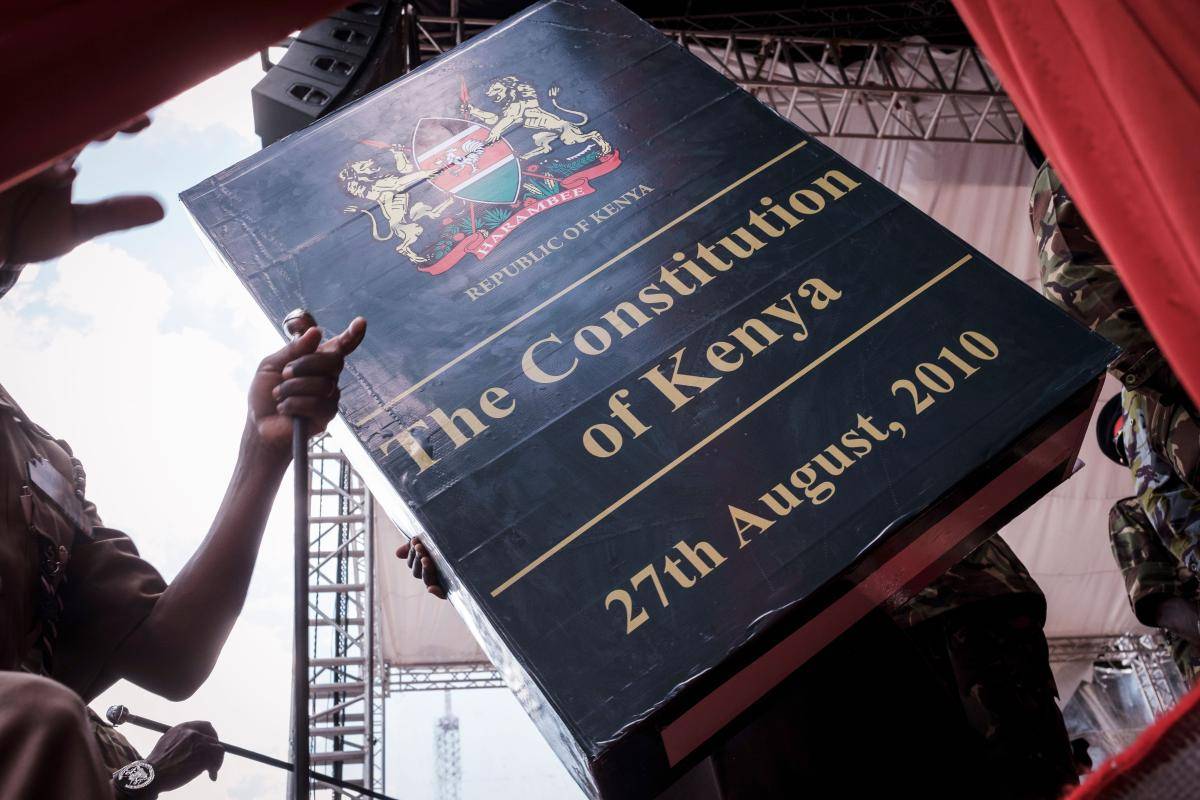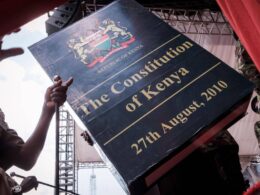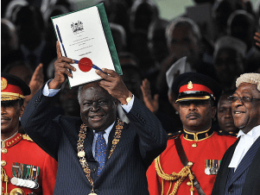NAIROBI,Kenya – Kenyan-born American academic, Prof. Ali Mazrui used the term “Democracide” to explain how democracy is gradually being killed across the African continent. “Democracide” is a term coined to describe the deliberate actions or processes that lead to the erosion, weakening, or destruction of democratic principles, institutions, or norms within a society or political system.
It encompasses actions taken by individuals, groups, or governments that undermine democratic values such as freedom of speech, rule of law, free and fair elections, political pluralism, and the protection of human rights. “Democracide” can manifest in various forms, including authoritarianism, suppression of dissent, electoral fraud, corruption, and the concentration of power in the hands of a few.
In the recent past, Senator Samson Cherargei introduced legislative proposals to increase the presidential term limit from five to seven years. The senator also seeks to extend the term of MPs, MCAs, and governors to seven years from the current five years. The bill also seeks to create the Office of the Prime Minister. It further proposes that the Senate be mandated to vet Cabinet Secretaries, the Attorney General, the Auditor General, the Inspector General of Police, the Chief Justice, and High Court Judges.
The bill further proposes that counties get 40per cent of the national revenue, an increase from the current 15 per cent. Cherargei also proposes that the governor’s and deputy governor’s impeachments should only be challenged at the Supreme Court.
Extend Term Limits to Concretize Power
The proposal to extend term limits for the presidential term limit and terms of other elected officials to seven years risks undermining democratic principles, reducing accountability, and concentrating power. This proposal goes against the sentiment expressed by many citizens and civil society groups.
It reflects a disconnect between political elites and the will of the people, which is detrimental to democracy’s core principles. The separation of powers and checks and balances are fundamental to a healthy democracy. Shorter terms help maintain this balance by ensuring that no elected officials accumulate excessive power over an extended period. Extending terms undermines this balance and increases the risk of authoritarian tendencies.
The Senator argues that 5 years is too short to achieve anything of substance, and while stability is essential for governance, overly long terms can lead to complacency, stagnation, and the entrenchment of political elites. Shorter terms encourage competition, innovation, and fresh perspectives in leadership, which are vital for a dynamic and responsive political system.
Killing Judicial Independence
The notion that politicians can play a role in the selection and vetting of Judges and the Chief Justice is not just misguided but fundamentally dangerous. The Judiciary has been the last line of defense against executive overreach since the enactment of the Constitution in 2010. This move to undermine judicial independence by politicising judicial appointments is a direct assault on the democratic principles that form the foundation of our Nation.
It’s crucial to recognize that Parliament has often capitulated to executive demands, failing to uphold its role as a check on executive power. The Judiciary, on the other hand, has consistently upheld the rule of law and protected the rights of citizens, often in the face of political pressure and intimidation.
The framers of the 2010 Constitution were acutely aware of the historical challenges faced by the Kenyan Judiciary under previous regimes. They deliberately included provisions to safeguard judicial independence as a cornerstone of our legal system. To backtrack on these foundational principles now is to betray the vision and sacrifices made to establish a truly independent and impartial Judiciary.
Allowing politicians to meddle in judicial appointments opens the door to favoritism, nepotism, and political interference in the administration of justice. It undermines public trust in the Judiciary and erodes the separation of powers essential for a functioning democracy.
We must vehemently oppose any attempts to subject judicial appointments to political whims and interests. The integrity and independence of the Judiciary are non-negotiable pillars of our democracy, and they must be fiercely protected against any encroachment from the political sphere.
The bill is dangling carrots in front of counties with promises of a 40 per cent share of national revenue, a substantial increase from the current 15%. However, this seemingly generous offer is akin to a trojan horse, concealing hidden dangers that threaten to undermine devolution.
One of the key proposals in the bill, championed by Cherargei, suggests that challenges to the impeachment of governors and deputy governors should bypass the Senate and lower courts and be heard directly at the Supreme Court.
This tactical move appears strategic on the surface, designed to garner support from county leadership by granting them a semblance of exclusive power. Let’s not forget that the National Government has historically struggled to fulfill its commitment of providing the mandated 15 per cent to counties.
Doubling this allocation to 40 per cent seems more like a mirage than a feasible reality. Furthermore, past experiences have shown that governors, embroiled in battles over funding shortages, have resorted to paralyzing essential county functions and engaging in lengthy legal battles that often end up at the Supreme Court. These proposals just like the trojan horse of legend, carry with them the seeds of devolution’s demise.
In conclusion Kenyans are acutely aware of the arduous journey that has brought us to our present state of Governance. Nothing and Nobody should erode these gains and Kenyans remain steadfast in safeguarding them.
David Mburu is a Human Rights Lawyer,NOREC fellow and and a Programme officer at ICJ Kenya. This article was first published on the Daily Nation.











